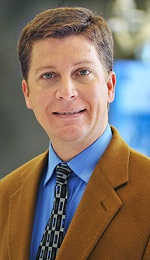 |
| Dr. David Lonard, study co-senior author |
Researchers at Baylor College of Medicine have overstimulated cancer cells with a new drug candidate called MCB-613, showing promise in preventing tumor growth.
"No prior drug has been previously developed or proposed that actually stimulates an oncogene to promote therapy," says David Lonard, who is the co-senior author of the study, which was published in the most recent edition of Cancer Cell. "Our prototype drug works in multiple types of cancers and encourages us that this could be a more general addition to the cancer drug arsenal."
Rather than targeting genes that can transform cells into cancer cells, termed oncogenes, by inhibiting their function, they adopted the reverse approach--which was to overstimulate them.
It's been previously shown by many groups that members of the steroid receptor coactivator (SRC) family are key to cancer growth and survival. The SRC proteins are positioned next to important signaling pathways the cancer needs to rapidly spread and become resistant to drugs, and therefore the researchers identified and took forward MCB-613 after a wide screening of SRC activators.
Their in vitro findings showed efficacy in killing human breast, prostate, lung and liver cancer cells, leaving normal noncancerous cells untouched. When they took this into a mouse model with breast cancer they observed total elimination of tumor growth without toxicity when they injected MCB-613, as compared to a control group.
The compound's mechanism of action works by increasing the accumulation of unfolded proteins in the endoplasmic reticulum (ER). By overstimulating SRCs with the compound, they put the ER into overdrive having to work even harder to keep up with the surplus of unfolded proteins and in turn triggering a stress response of oxygen free radicals--usually a trigger for cell death.
The next steps will see the researchers further explore mechanisms of action of SRCs in killing cancer cells and optimizing SRC activators.
- here's the release
- get the research abstract